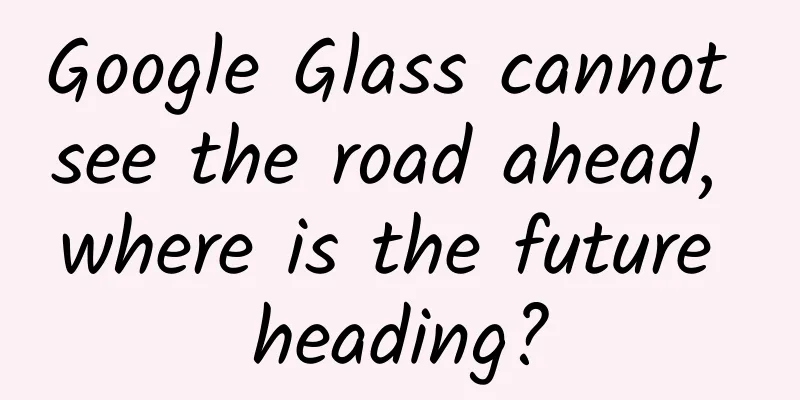Google Glass cannot see the road ahead, where is the future heading?

|
Google Glass has captured the attention of the media and the public for the past two years, but the product has not been a success. So what happened to Google Glass, and where is it headed in the future? Regarding the first question, we can see that the exploration of Google Glass did not have a good result. You can look at Google Glass this way: suppose Apple releases a $1,500 Apple Watch smartwatch and sells it to tens of thousands of users. Then many well-known people discover that the product has serious bugs and the product is not actually developed. Finally, Apple suddenly cancels the product. This would be a major failure, but the actual experience of Google Glass was even worse. During the development process, Google Glass also encountered controversy about privacy protection, such as Google Glass users secretly filming private conversations. As a result, some places began to ban Google Glass, and the media coined the term "glasshole", which was accepted by the public. In addition, the safety of Google Glass has also aroused people's concerns. It is not safe to use Google Glass while driving, and long-term use of Google Glass may not be good for human health: no one would like to place a WiFi signal source a few centimeters away from the head for a long time. There have been a lot of reports in the media about the applications of Google Glass, including skydiving and fashion shows. However, these applications did not help Google Glass complete the test. Finally, in January, a Google executive explained the failure of Glass. In a keynote at this year's SXSW conference, Google's Astro Teller pointed out that by attracting public attention, Glass ultimately received a lot of negative reviews. In addition, it also made it unclear what kind of product Google Glass was: was it an experiment or a finished product? So what are Google's current plans for Google Glass? A Google spokesperson once said: "The Google Glass team is working on future versions of the product." Although Google stopped selling Glass in January and terminated the Glass Explorer program, it has not completely canceled the project. Tony Fadell, head of Google's Nest, is currently in charge of developing the next generation of Google Glass. The New York Times reported earlier this year that Fadell is "redesigning the product from scratch" and the new product will not be released until it is finalized. Google will not conduct a public test this time. Google's page says: "The journey doesn't stop here." Google's idea of trying to develop a new generation of Google Glass is understandable. Market research firm IDC predicted this month that global shipments of wearable devices will reach 72.1 million in 2015, up 173.3% from 26.4 million in 2014. While Google's rival Apple has launched a successful wearable device, Apple Watch, Google's own Android Wear has not performed as well. |
<<: Programmers, after seeing the salary of Apple interns, don’t you want to quit?
>>: The 4 most important performance indicators for enterprise-level Java applications
Recommend
How much does it cost to customize a film and television mini program in Xiangtan?
In order to better penetrate into various industr...
The most complete free new media operation tools, you will miss out if you don’t collect them!
In order to solve the various problems encountere...
What is the difference between "shut down" and "restart" on your phone? After using your phone for so many years, I finally understand
When we used mobile phones with removable batteri...
Meituan Grocery APP Product Analysis
The growth of user scale and the maturity of deli...
Foshan mini program production and customization development, what are the processes for developing a mini program?
After the fifteenth day of the first lunar month,...
Zhejiang University team creates new substances, and the results are published in Nature
Ceramics and rubber are two materials that we oft...
From the death of Avon to f2c: Almost all large companies have been defeated by blind loyalty to old rules!
The death of all companies is caused by one reaso...
Zhihu's "Wilson Formula" recommendation algorithm!
If operators or creators want their content to at...
Small Demo, Big Knowledge - Learn Android Coordinates by Controlling Button Movement
Today I will share a simple demo. The function im...
France does not rule out reducing or selling Renault stake depending on market conditions
According to foreign media reports, French Financ...
How to create a screen-sweeping fission event?
It has to be said that screen-sweeping fission cu...
Taking Cloud Music as an example, how to acquire a large number of target users at low cost and high efficiency
How can we quickly acquire a large number of targ...
How machine learning predicted traitors on Game of Thrones
Using predictive models for marketing The key cha...
Price inquiry for customized love and marriage mini program in Tacheng. How much does customized love and marriage mini program in Tacheng cost?
Tacheng marriage and love applet customization pr...
How good is the product manager in a programmer’s dream?
The conflicts between programmers and product man...









